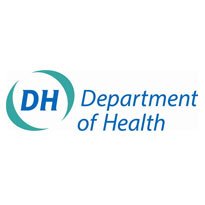The Department of Health has signed a deal with Inovem to use its Kahootz cloud-based collaboration system in a deal the government hopes will lead to “significant savings” on software licensing costs.
The DH chose the system through the government’s cloud services supplier catalogue CloudStore, to replace its legacy IBM Quickr collaboration software.
Bob Armstrong, the DH’s head of ICT futures and shared services, said the agreement is part of the department’s “journey” towards cloud-based services which started with its migration to a private cloud-based desktop.
“Now that the migration to a cloud-based desktop is over, what we’re doing is attacking some of the legacy applications that we couldn’t do before.”
Sophie Rawlings, DH’s head of information management, said Kahootz offers public sector experience and the best value for money, while its “functional richness” includes capabilities for data capture and reporting, building questionnaires and surveys, and risk and issue registers.
The service also allows users to upload large documents and manually or automatically split them into different sections, with users then assigned to work on different parts with permission restrictions.
“It’s much more than basic file-sharing with a bit of social,” Rawlings said.
She said another advantage of Kahootz is its accessibility, as it can be used through any device or browser rather than needing a DH device.
The service’s “purpose-driven” format means it will be useful to project teams, boards and committees among others.
Rawlings said the external-facing service is not intended for sensitive or restricted information, and can only be joined by invitation with a professional email account.
She said the G-Cloud call-off framework means significantly lower costs as the DH does not need to purchase its own software user licences which it might not use.
Instead, it will pay a monthly fee per user for the services it uses, which will allow it to scale usage up and down as necessary.
Rawlings said the terms of the agreement allow access to Kahootz to be expanded to arm’s length bodies and non-departmental public bodies like NHS England, the Care Quality Commission, the NHS Health Research Authority and 20 other agencies and public bodies.
Any DH partner organisations who want to use the service will receive “advantageous terms”, with no procurement or entry costs.
The DH and partners will split the monthly fee for any users who work across more than one workspace on Kahootz.
Rawlings said the procurement process took only two months, with Kahootz chosen from a shortlist after discussions with suppliers.
“We knew what we were looking for, and we went through a fairly rigorous process…but it was remarkably quick.”
Rawlings said DH has been piloting Kahootz with two groups that include members of ALBs, and has received “nothing but positive feedback” about the platform’s ease of use from the workspace managers.
The DH will start promoting Kahootz from the end of the month, and will migrate or decommission its sites still using Quickr over the next six to eight months.

